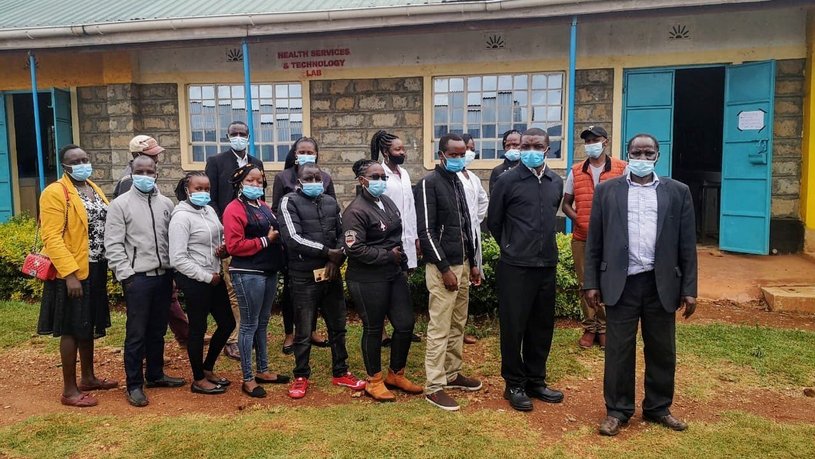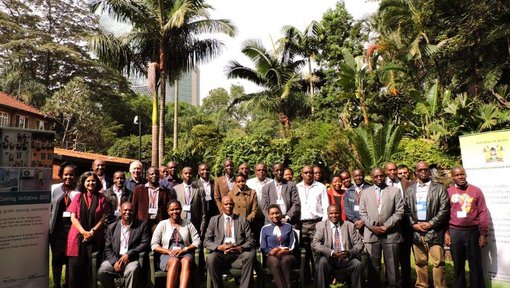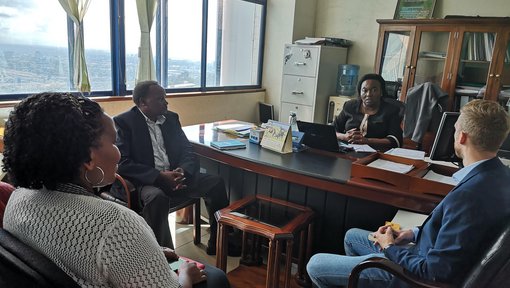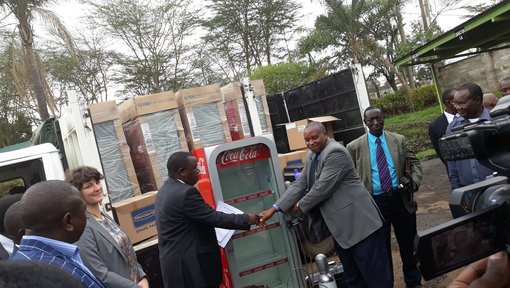From droughts, to floods and land pollution: Marindany Kirui has experienced many dynamic changes in his environment. Today, he is the Coordinator of the National Ozone Unit in Kenya and is actively involved in environmental protection.
Marindany Kirui has been involved in ozone and climate protection for over 20 years. For about eight years now, he is the Coordinator of the National Ozone Unit in Kenya, a unit within the Ministry of Environment and Forestry. Against this background, Mr. Kirui is actively driving a nationwide shift to Green Cooling (ozone- & climate-friendly refrigerants in combination with high energy efficiency). We talked to him about his most rewarding experience and what’s still lacking for a successful transition.
Mr. Kirui, to begin with, a very general question: Why do you personally care about the environment? Is there a memorable experience in this regard?
Personally, I care about the environment as I have witnessed dynamic changes in it. I have experienced droughts, floods, change in rain patterns in the country, food loss, food wastage and land pollution (dumping of obsolete equipment), among others.
How did you get into ozone and climate protection and how long have you been working in this field?
Having been in the pollution control division of the Department of Environment in the Ministry of Environment as a chemist, and having the Ministry of Environment as the Focal point of the Ozone treaties, I was seconded to the Institutional Strengthening project under the Montreal Protocol on substances that Deplete the Ozone Layer as Assistant Coordinator. I have been working in the field for twenty (20) years.
Gallery
During these 20 years in ozone and climate protection, you have certainly been able to build up an enormous wealth of experience. What has been one of the most rewarding experiences during your career?
My most rewarding experience during my career was and still is the organization of training workshops for refrigeration and air conditioning technicians on the safe use of natural refrigerants, in particular hydrocarbon refrigerants.
Training technicians in the use of natural refrigerants is an important prerequisite for the nationwide dissemination of climate-friendly cooling. Kenya also included the RAC sector into its NDC update technical report in 2020. How do you envision an ideal refrigeration and air conditioning sector in Kenya in the future?
I envision an ideal refrigeration and air conditioning sector when Kenya fully adopts ozone- and climate-friendly technologies which are also energy efficient.

We are now talking about the nationwide adoption of Green Cooling. But truth be told: Do you personally have climate-friendly air conditioning or refrigeration at home?
Yes, I have climate-friendly refrigerators at home. The refrigerators operate on R600a.
Please complete
The biggest obstacle for Green Cooling in Kenya at the moment is…
"the lack of a National Green Cooling Action Plan."
There should be more women in refrigeration and air conditioning because…
"they are significantly underrepresented in the RAC sector."
I love my job because…
"it makes me contribute positively to a clean and healthy environment."







